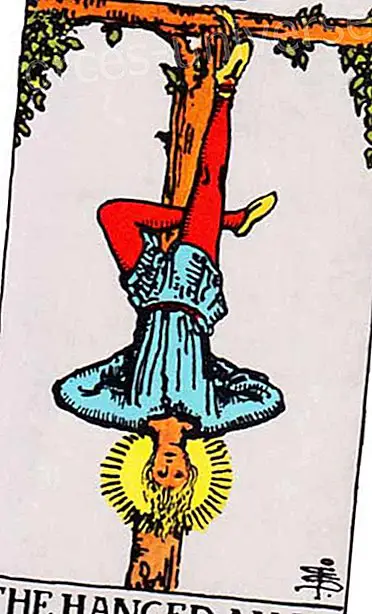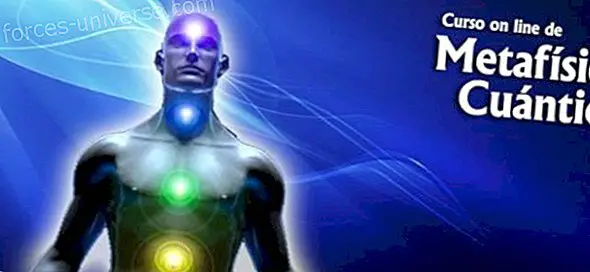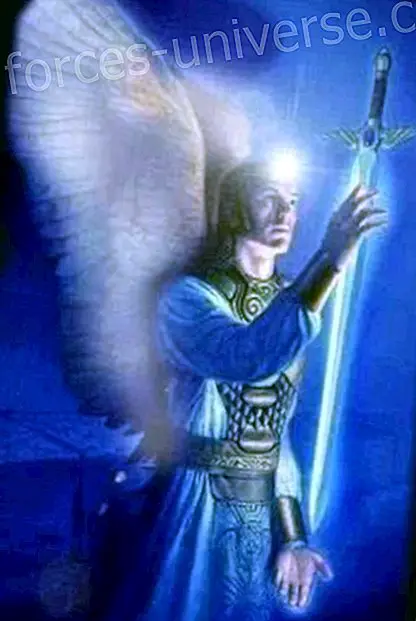
An association looks for the heirs of the Spanish lands of the Spanish confiscated in the 19th century They try to boost rural development.
This history goes through more than a century and from end to end the Spanish map: from Zaragoza to C ceres, from Asturias to Soria, jumping through its communal mountains. The laying of the railroad and the Carlist wars had left the national coffers shivering. Drowned by the debts, the State decided, at the end of the 19th century, to put the lands that were in dead hands to the public auction. of the Church, the military, the universities. And also those of the Town Halls, whose pastures, read and hunt lived entire villages.
“This of the mountains is very emotional”
Some seven million hectares of forest went up for auction in the 19th century
The neighbors got into debt to buy those lands
Now 11 members are enough to become a management board
A grant from the Environment has allowed the heirs to be sought
Thus began this story. The Forestry Association of Soria wants to give life back to that natural heritage that belonged to the neighbors. In some villages they already have advanced plans or activities underway to clear mountains, lift the fallen stone walls, organize the entry of livestock, sell holly in a controlled way, restore houses, plant potatoes, celebrate gastronomic days, recover ditches, save ancient oaks ... But who can do all that? The owners And who are the owners of those mountains today? Let's go back to the old story ...
The confiscation sowed fear in the villages: anyone could buy the land and deprive them of their livelihood. They decided to organize, borrowed, borrowed and sent some neighbors to attend those public auctions. “Buying the mountain was not easy, 117, 000 pesetas were much then; most of them had a bad time, they sold the cattle to pay the bills and in my town they had to give up the right to logging for 40 years. And they only reserved the right to use the pastures and take wood to build the houses and firewood for the home, ”says Cándido Moreno de Pablo, 71, a native of Herrera de Soria. But they took ownership. His great-grandparents were those 45 neighbors, possibly all the people, who bought the mountain and benefited from it equally. This was the case in many provinces and the mountains of partners, society of neighbors, of wastelands arose, in each place they take their name.
But the migratory waves of the twentieth century emptied the villages: there were mountains, houses and property documents, many lost forever.
That documentary fragility has remained until today. If there are no papers, any town hall can become the owner of the mountain. “It was not fair that those properties that were bought with so much effort and that belong to the neighbors changed hands like this, without more. We set out to look for the heirs and propose the rescue of the mountains and give a boost to rural development, ”explains Pedro Medrano, technical director of the Forestry Association of Soria (www.montesdesocios.es).
The Ministry of Environment and Rural Environment granted them last year 732, 000 euros to comb the archives in search of the owners and their heirs. The genealogical path has taken them where it was to be expected: to Argentina, for example, but also to Barcelona, to Bilbao ... The work in the province of Soria, the most advanced, is already complete: 185, 000 hectares of forest were sold and 81% it ended up in mountains of partners, a part for each one. Now they are repeating the process in Zaragoza. The figures that are coming out indicate that the studies that have been up to date have fallen very short (see graph). Some experts and scholars of the matter estimate that the communal territory could occupy more than two million hectares of the nearly seven million forest areas that were confiscated. The mountains of the commons, or mountains of luck, have remained all this century in the care of a few locals, but they could not make decisions without the contest of all the owners, something practically impossible. In order to save that legal obstacle that had paralyzed hundreds of hectares, the Forestry Law was modified in 2003 and the management boards opened their way, for whose constitution 11 neighbors are enough and now they have decision-making power. In Soria, 22 of these meetings have already been constituted - seven in Asturias and there are some in the portfolio in León and Segovia - but they have not been satisfied with that. They have continued to look for all the heirs, pulling files, but also the memory of the elders, "which has also led to fruitful encounters and exchanges between generations." The constitution of the management boards, which has been intended to provide great solemnity, has been an event in some villages. The streets have been decorated, various authorities were received and some very old people came to sign the new papers that prove their property. "The mountains in a state of proindiviso have been the great forgotten, in official statistics, by the forest administrations and, what is sadder, by the heirs of the buyers, who thus forgot part of their recent history", says Amador Marín, of the Forestry Association of Soria.
The rescue of these lands has a “main objective, which is to conserve the population that lives in these small villages, which do not continue to go to the cities. Therefore, part of the benefits that can be obtained, if not all, must have that priority, restore houses and allow residents to have financial assistance to continue living in the town, ”explains Medrano.
For the rest, let no one think of getting rich. When only the 11 precise owners have been found to constitute the management board, the rest of the money can only be reinvested in improvements, of the mountain or of the town. And if everyone is found, the money cast is ridiculous. “The experience we are having is what we expected: we are finding among the heirs young people who are excited to participate, give life to the village of their grandparents, to the mountain, they know that with a participation of 0.0008 they can never getting rich, not even dreaming about a little straw, no matter how much wood is sold, ”explains Manuel Gómez Ceña, (Soria), president of the management board of La Póveda (Soria), one of the towns with the most advanced plans.
The search for the heirs has generated huge sheets of paper that are now deployed on the table of the Soria forestry association. More than one tear has fallen through these villages when they have contacted them to tell them that their origins are there and that this mountain is also a bit of theirs, at least 0.005% of the shares. “Elijah cried like a Nazarene. He took some stones from his grandparents' house and took them when he returned to Argentina, ”says Cándido Moreno de Pablo, of a recent visit made by this family. “I have explained to everyone that we will never allow the mountain to be used for interest. They replied that they were satisfied only with being able to show that their children are descendants of those Spaniards. They are very sentimental people, ”says Cándido, old Castilian, in a tone of praise.
"We must insist that this will not report economic benefits, what it is a matter of recovering a comprehensive management system, silvopastoral, such as the one that had, balanced, and sustainable, " continues Pedro Medrano.
But when money peeks out, things inevitably get complicated. In some villages, the mountain has begun to be more profitable than it was: the fault is the new windmills. The wind turbines have brought the struggle between the neighbors and the administrations, for example in Ledrado, a hamlet of Las Aldehuelas. “We own 9 mills. We have become a management board and we can exploit that, they already owe us arrears, because the company has waited to know who should pay them, ”explains Pedro Antonio Marín, who has returned to town after retiring and they are excited about the idea of giving Life to the mountains. A mill can give about 3, 000 euros a year. "But that nobody is called to deceit, the dividends will be for rural development, to reinvest in the forest, to help the common good in the town." This is also believed by the mayor, Segundo Revilla Jiménez. “Those mountains were bought by our grandparents, they belong to the people, there is no doubt about that. Why should the City Council claim them? In addition, the benefits will go to the well-being of the people themselves and to the maintenance of their population, that is vital here, ”he adds.
Be that as it may, all those involved in this adventure point out that this story is born of solidarity and should not move from there. It was always like this. In the town of Cándido, Herrera, there are 15 people registered, but only four houses open. Each of these houses, in payment for keeping the town alive, receives 5% of the benefit of the wood, or the leases for livestock. The rest is enjoyed by the City Council, that is, the neighbors. "It was always like that, " recalls Candido. “With that money the electric lighting was paid, the running water was taken, schools, roads were built. It was money from neighbors invested in neighbors. ” And so it goes.
The solidarity formulas in which neighbors organize themselves to share the use of the forest and its performance are diverse and all speak of the past; precious traditions that constitute a formidable intangible heritage. In Espej n, for example, to have the benefit of benefits you have to ensure that you live in the village and there is a book of overnight stays: the days that can be spent outside are limited and the neighbors when they leave they have to communicate it to the secretary, account C ndido. It looks like an old story, but it isn't.
Town to town, the enjoyment of these mountains is usually clinging to natural offspring, parents, children, weddings, new parents and new children. But the population bleed is unstoppable. The villages are deserted again, although now emigration moves only a few kilometers, to the headwaters of the region, to the city. He is already talking about opening his hand so that families who are not from the town but who really want to live in it, immigrants, for example, can recognize Pedro, recognize, recognizes Pedro Medrano A doubt, remember the tradition, to those old buyers ... But it is the times that are running and he knows that the priority is for the people to remain alive and with him, his mountain.
This mountain is very emotional
Upon the death of his father, an old Spanish emigrant who made his life in Argentina since 1925, El as Pascual wanted to find his origins. The father never talked much about it. We knew it was from a town in Soria and sometimes mentioned El Burgo de Osma. My father lost all the contacts when the grandparents died. We also knew that it was a very small town, but we took the car and hit it. At the first door I called, where there were hanging clothes, I received a cousin from me, of course, we had no knowledge, and then I met other cousins It was exciting, Elias says at 73.
On that trip he left good tears. He took several stones from his grandfather's house, for him and his sister, and returned to Argentina. But I never lost contact again. The economy does not allow them to travel as much as they would like, but there was a second visit to Spain three years ago, with their children. Then he met C ndido Moreno, who had already written to him in advance, requesting his information so that he and his children would appear as owners of Mount Herrera (Soria). He sent the papers to Argentina, signed and forwarded them back to Spain.
Some little tree should touch me, I don't know if big or small, he jokes. `` But, above all, it is the satisfaction of the memories of the family, of my grandfather, who was one of those who bought the mount with such effort, He gets excited, and must leave the phone in the hands of his wife, an Italian who also arrived with immigration, Adriana Mattioli. He is excited, there are many memories, you know? All this of the mountains is very emotional, what the ancestors did with so much love for the ground is necessary to continue taking care so that it does not disappear. And it is very clear that there is no economic interest, please, none. It's just to keep what our old men did. ”
Source: http://www.elpais.com/articulo/sociedad/bosque/vuelve/estar/animado/elpepisoc/20111128elpepisoc_2/Tes






